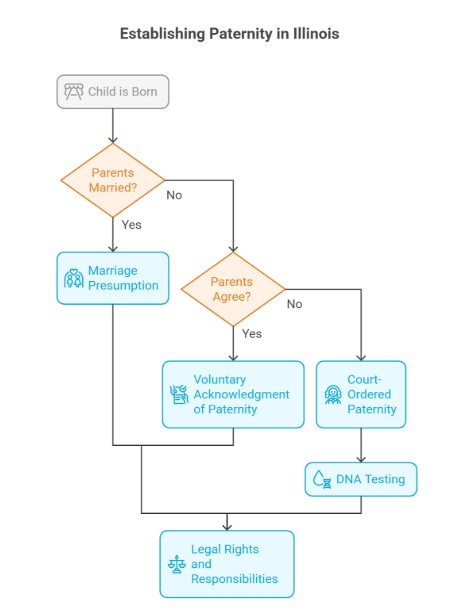When couples go their separate ways, deciding who keeps the family pet can tug at the heartstrings. Imagine, in a world where our furry friends are like family, how do we decide who gets to keep them without turning it into a big fight?
That’s where pet mediation comes in. It’s a friendly chat with the help of someone who doesn’t take sides, aimed at making sure everyone, including our pets, ends up happy.
Pet mediation involves a neutral third-party mediator who helps us reach an amicable agreement regarding the custody of our pets. This process is designed to foster a collaborative environment.
This way, we talk things out, keep things calm, and make sure our pets’ wagging tails and purring hearts are looked after, keeping in mind what’s best for them and for us.
Key Takeaways
- Pet mediation offers a compassionate approach to resolving pet custody during divorce.
- A neutral mediator assists in creating fair agreements that consider the pet’s well-being.
- The process importantly acknowledges the emotional aspects of pet ownership and custody.
The Growing Trend of Pet Mediation
Pet mediation has become increasingly sought-after as a compassionate approach to resolving pet custody during divorce. We understand the emotional complexities and aim to prioritize the pets’ welfare.
Pet mediation is a specialized process where divorcing couples work with a neutral third party to decide the future of their pets amicably.
These mediation services focus on creating a shared agreement that reflects the animal’s best interest, rather than treating the pet as mere property.
We engage in structured discussions to navigate the sensitive issue of pet custody during divorce. This ensures that the emotional well-being of our furry friends is considered.
Why Choose Mediation for Pets?
We choose mediation for pets because it provides a peaceful platform to discuss and resolve pet custody. The key benefits include:
- Reduced Stress: Mediation is less adversarial than court litigation, reducing stress for both the pet and owners.
- Flexibility: We work together to formulate a custody arrangement that best suits our pet’s routines and needs.
- Control: Our mutual decisions drive the process, not a court’s ruling, giving us greater control over the outcome.
Mediation can effectively address pet custody, support, and even visitation schedules, respecting the bond we share with our pets.
The Process of Pet Mediation
Pet mediation plays a crucial role in resolving pet custody disputes amicably during a divorce. We will guide you through the steps involved in this process, focusing on how it helps divorcing couples agree on the best outcome for their pet’s future.
Initial Consultation
The first step in pet mediation is the Initial Consultation. We meet with both parties in this stage to outline the mediation process. Our goal is to understand the emotional and practical significance of the pet to each individual. Establishing a respectful environment where both parties feel heard regarding their attachment to the pet is important.
Identifying Interests
Next, we move on to Identifying Interests. During this phase, we focus on pinpointing what each party really wants for their pet’s well-being.
This might include discussions on where the pet will live, how responsibilities will be divided, and any specific concerns relating to the pet’s care. Here, the hidden concerns and priorities are brought to the surface.
Exploring Options
In the Exploring Options subsection, we brainstorm viable solutions to the pet custody agreement. Options may range from one party having sole custody to agreed-upon visitation schedules.
We encourage creative thinking to find compromises that serve the pet’s best interests while accommodating both parties’ lifestyles and attachments.
Reaching an Agreement
Finally, we aim to reach an Agreement. After reviewing potential solutions, we work towards a consensus that is satisfactory to both parties and, most importantly, benefits the pet.
Once an agreement is reached, it’s formalized into a pet custody agreement, which can then be incorporated into the final divorce decree.
Our role is to ensure that the negotiated agreement regarding negotiating pet custody is clear, fair, and enforceable, setting the stage for a peaceful post-divorce relationship.
The Emotional Aspect of Pet Custody
In divorce proceedings, the fate of a beloved pet can evoke strong emotions for all involved. Understanding the nuances is crucial in navigating what is often not just a legal but an emotional battlefield.
Pets as Family Members
We recognize that pets hold an irreplaceable position as family members. When we’re faced with the dilemma of who gets the dog in a divorce? It becomes more than just a question of ownership; it’s about preserving family bonds and ensuring the welfare of a cherished companion.
This emotional weight complicates decisions and often leads us to seek pet custody without children in the equation, focusing solely on what’s best for the pet.
Legal Considerations in Pet Custody
In divorce chronicles, the fate of shared pets often takes on a significant emotional weight. We must consider the patchwork of laws that treat pets differently depending on jurisdiction and the role of legally binding agreements made before marriage.
Pets and Property Law
Pets are traditionally seen as personal property in the eyes of the law. However, states increasingly recognize pets’ unique nature as sentient beings that play a vital role in our lives.
For example, some areas have enacted legislation that allows for a more nuanced approach to pet custody during a divorce, taking into consideration the pet’s well-being.
This can include factors such as who has been the primary caretaker or which party has the means to provide for the pet’s continued care and welfare.
The Role of Prenuptial Agreements
Before marriage, we can craft prenuptial agreements that include provisions for pets. These agreements can outline who will keep the pet in the event of a divorce and include details regarding financial responsibility and visitation rights.
In the middle of a divorce, such agreements can provide a clear course of action for deciding pet ownership post-divorce. It’s a strategic move that can prevent contentious disputes and provide a fair outcome for all parties involved. In the absence of a prenuptial agreement, couples may seek the assistance of mediation to arrive at a mutually agreeable decision regarding the pet, which adheres to any standing legal rights for pets recognized by their jurisdiction.
Conclusion
In figuring out who keeps the pets when couples split, it’s all about kindness and smart thinking. We’ve talked about making sure our pets are happy and healthy, using calm discussions to decide what’s best, and even looking up what the law says about pets in breakups.
Remembering who usually takes care of them and being open to sharing time can help too.
Did this guide help you see how we can keep our furry friends’ tails wagging even when things get tough? Share your stories or dive deeper into our blog to learn more!
Find Peace for Your Furry Family in Times of Change
Life’s changes can be tough, especially when they involve those we hold dear—our pets. In the midst of life’s upheavals, such as divorce, the well-being of our furry companions must remain a top priority. Cooper Trachtenberg Law Group, LLC, doesn’t just understand this; we champion it.
Your pets deserve stability and happiness, no matter what life throws your way. Let us guide you through ensuring their future is secure, with compassionate, experience legal advice that covers all bases.
With experience spanning family law, real estate, and beyond, we ensure that every member of your family, especially the four-legged ones, is cared for and protected.
Act now for their tomorrow. Reach out to Cooper Trachtenberg Law Group, LLC, and let’s ensure your pets continue to thrive in a loving environment.
Frequently Asked Questions
What factors are considered when determining pet custody in a divorce?
When a court determines pet custody in a divorce, several factors come into play. These include who has been the primary caretaker, the well-being of the pet, and the individual’s ability to provide for the pet’s future needs.
Can pets become a part of a formal custody arrangement in a divorce settlement?
Yes, pets can be included in a formal custody arrangement much like children can. Sometimes, courts allow for joint ownership or consider the well-being of the animal, leading to innovative custody arrangements.
How does the process of pet mediation differ from typical property division in a divorce?
Pet mediation approaches the situation as more akin to child custody rather than mere property division. The mediator helps both parties reach an agreement that focuses on the pet’s best interests, rather than treating the pet as an asset.
What legal steps should be taken to formalize pet ownership following a separation?
To formalize pet ownership after a separation, you need to take legal steps such as defining ownership in the divorce agreement. Make sure this agreement is approved by the court to avoid future disputes.
What are the psychological impacts on pets following a change in their living arrangements due to a breakup?
Pets often experience stress and anxiety following a change in living arrangements. It’s crucial to consider their emotional well-being, as disruptions in routine and separations can have lasting psychological impacts.
In legal terms, how is pet custody addressed when couples are not legally married but are separating?
For non-married couples separating, pet custody is typically treated as a matter of property division. This is unless they’ve stipulated otherwise in a cohabitation agreement, or another form of legal agreement made during the relationship.




























